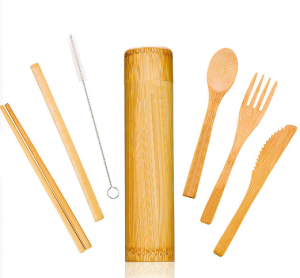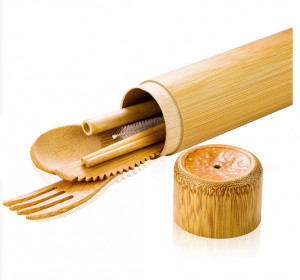Proper knife care is essential for prolonging the life of your blades and ensuring they remain sharp and efficient over time. Here are some knife care tips to help you maintain the quality and performance of your knives:
- Hand Washing Only: Always wash your knives by hand with warm soapy water immediately after use. Avoid putting them in the dishwasher, as the high heat and harsh detergents can damage the blade and handle.
- Avoid Cutting on Hard Surfaces: Never cut directly on hard surfaces like glass, granite, or metal. Instead, use a cutting board made of wood, bamboo, plastic, or soft materials like rubber. Cutting on hard surfaces can dull the blade quickly.
- Use the Right Cutting Board: Select a cutting board appropriate for the type of knife you are using. Soft cutting boards are better for the edge retention of your knives.
- Dry Thoroughly: After washing, dry the knives immediately and thoroughly with a clean towel to prevent moisture from causing corrosion.
- Store Properly: Store knives in a knife block, on a magnetic strip, or in a knife tray in a drawer. Avoid tossing them into a utensil drawer with other tools, as they can get damaged or dull by knocking against other objects.
- Honing Regularly: Regularly hone your knives using a honing steel before or after each use. Honing realigns the edge, keeping it sharp between sharpening sessions.
- Sharpen When Needed: Know when your knives need sharpening and invest in a good quality knife sharpener or whetstone. The frequency of sharpening depends on usage, but generally, once every few months for home cooks should be sufficient.
- Use Cutting Boards for Food Only: Avoid using your knives to cut hard items like bones or frozen food, as this can cause the blade to chip or break. Use specialized knives, like boning knives for meat and cleavers for bones.
- Avoid Twisting the Blade: When cutting through tougher foods, avoid twisting the knife. Instead, use a gentle rocking motion or back-and-forth sawing motion to protect the edge.
- Handle with Care: Handle your knives with care, and avoid dropping them or using them for tasks other than cutting food.
- Keep Separate Knives for Specific Tasks: Using the right knife for the right task can help preserve the edge and condition of your knives. For example, avoid using your chef’s knife to open cans or pry open packages.
By following these knife care tips, you can keep your knives in excellent condition, prolong their life, and ensure they remain reliable tools in your kitchen for years to come.







